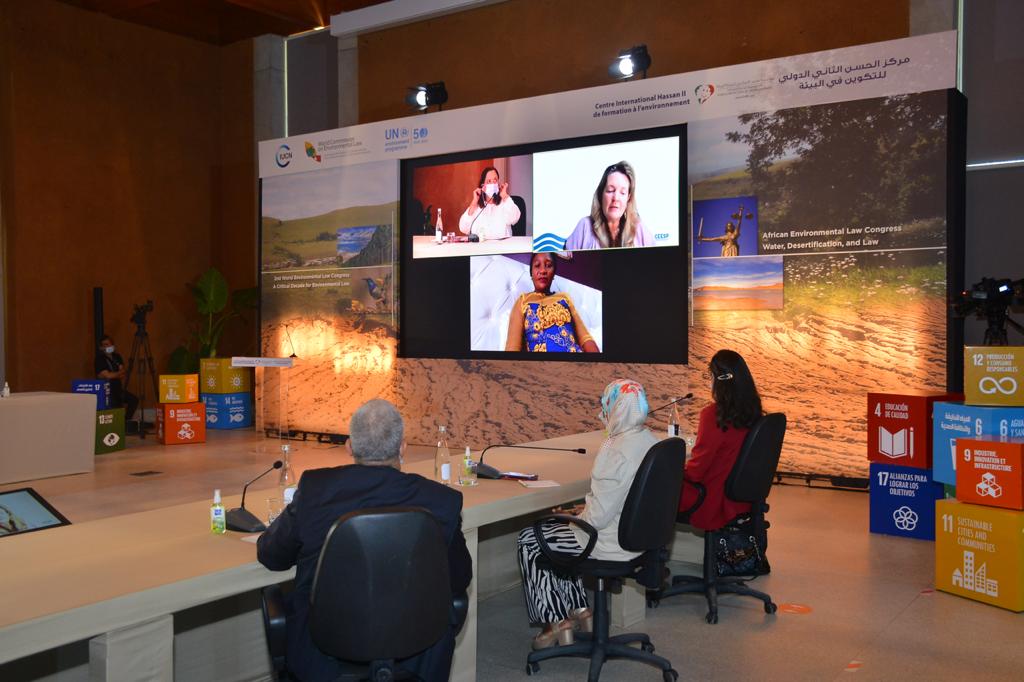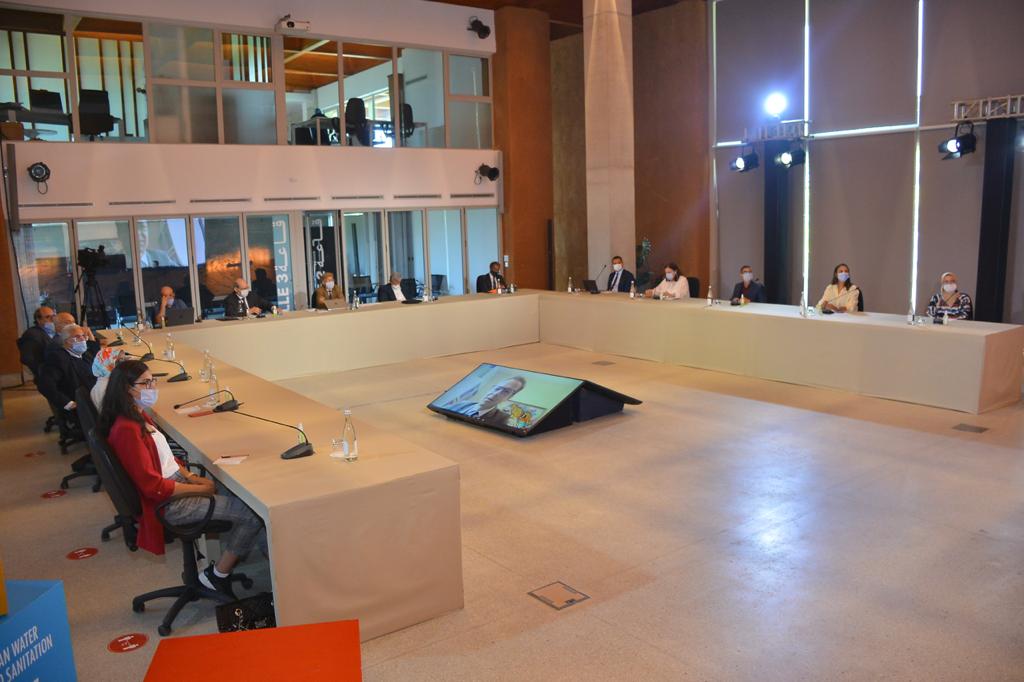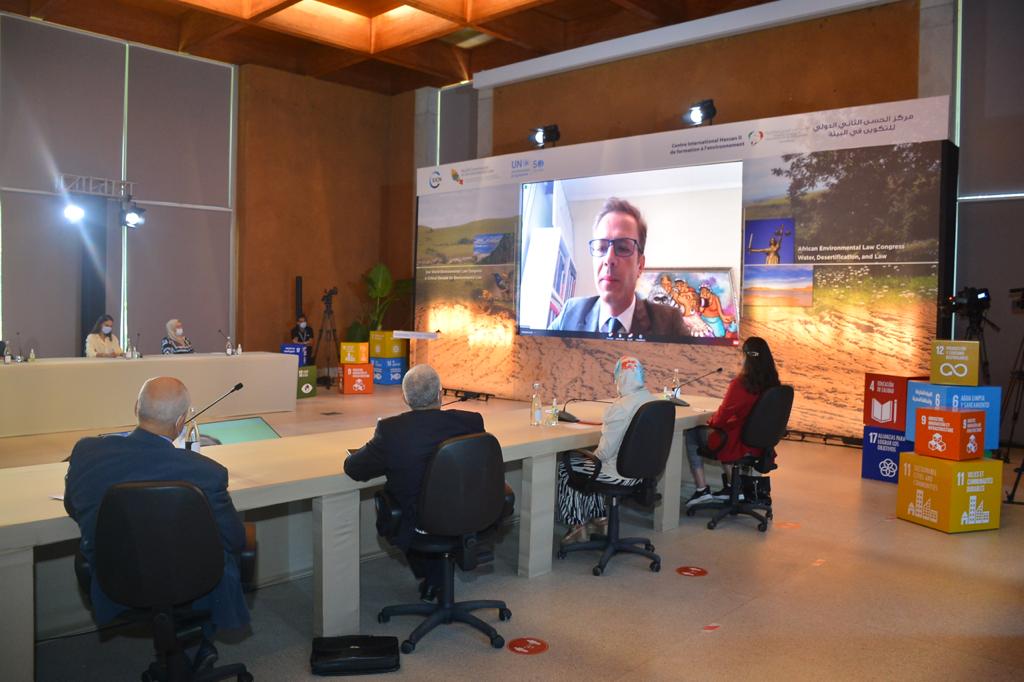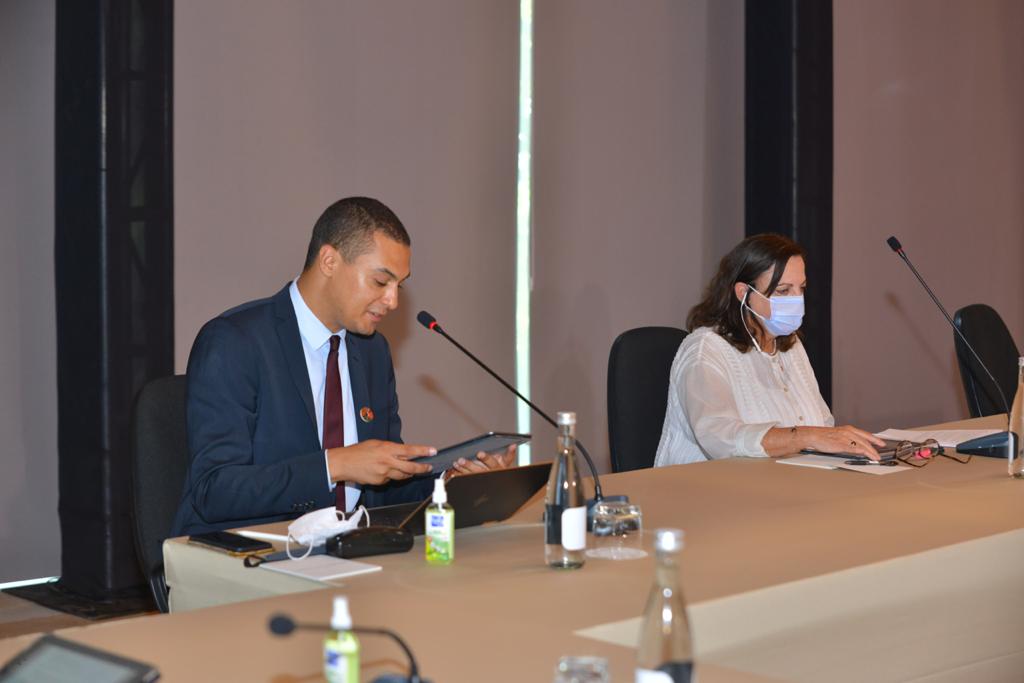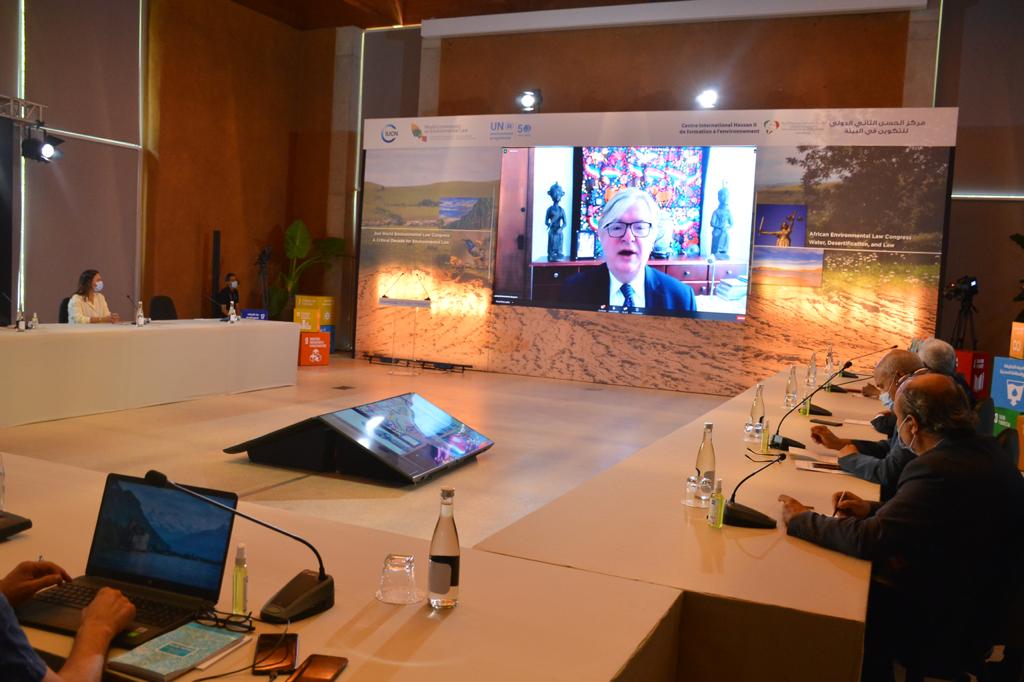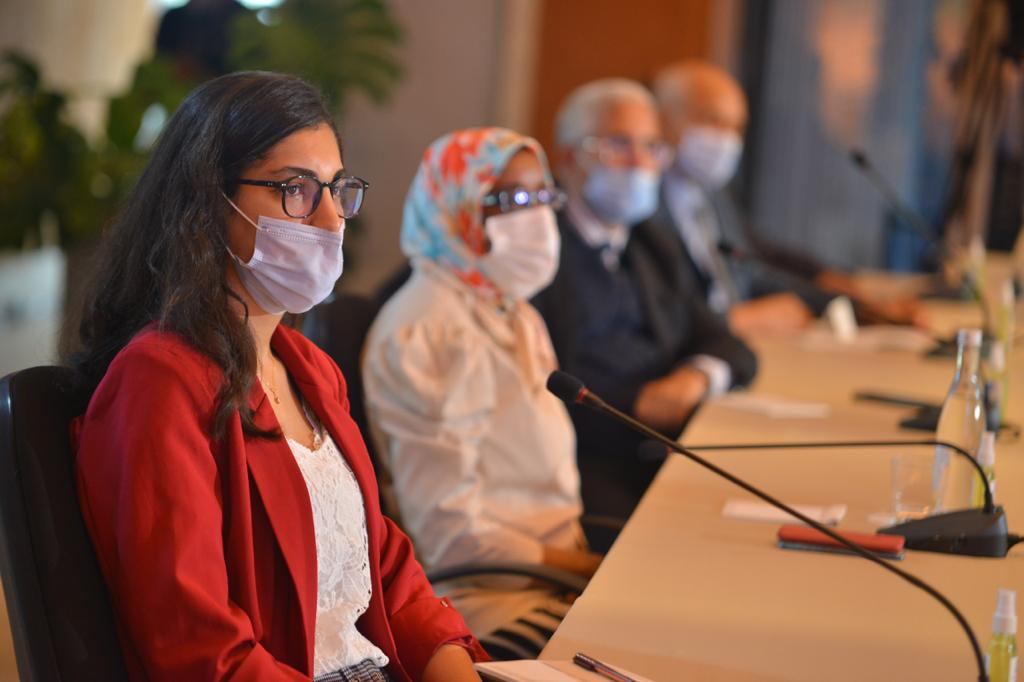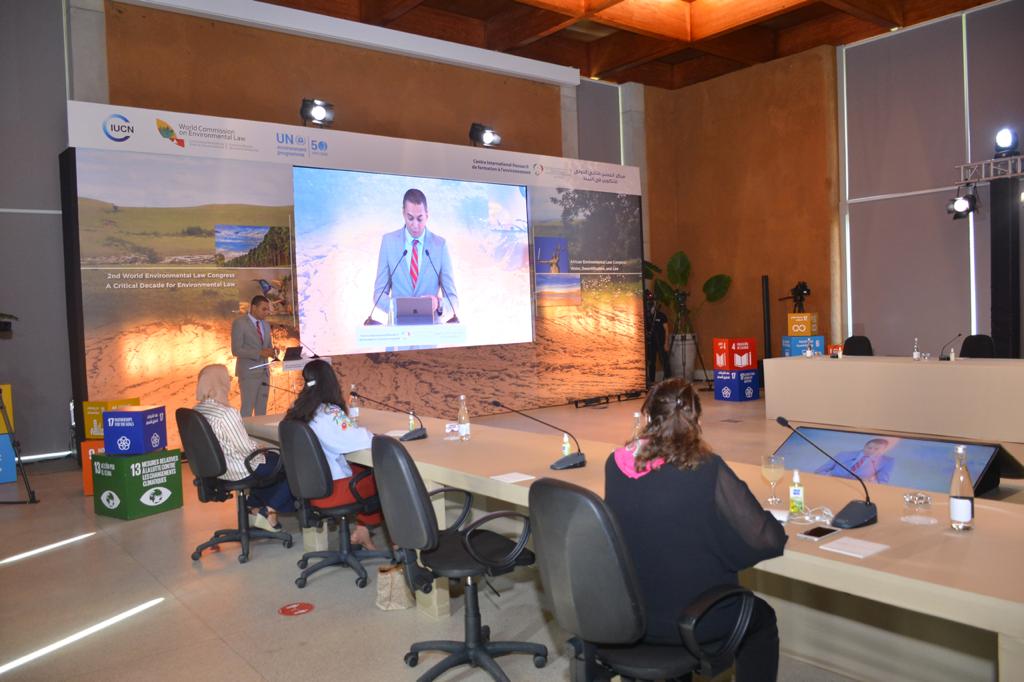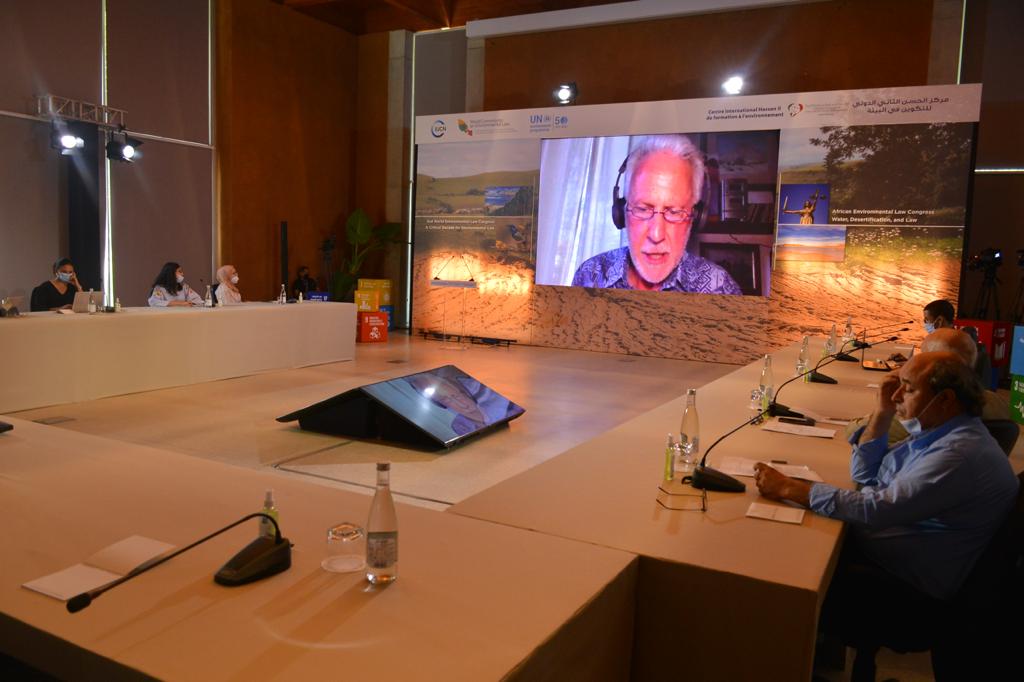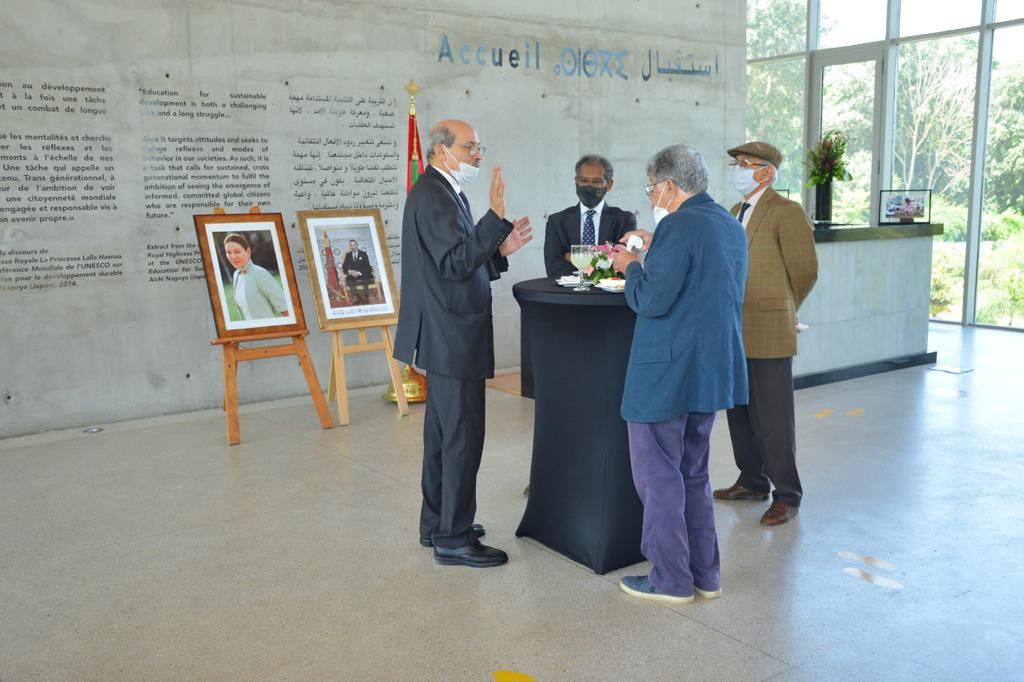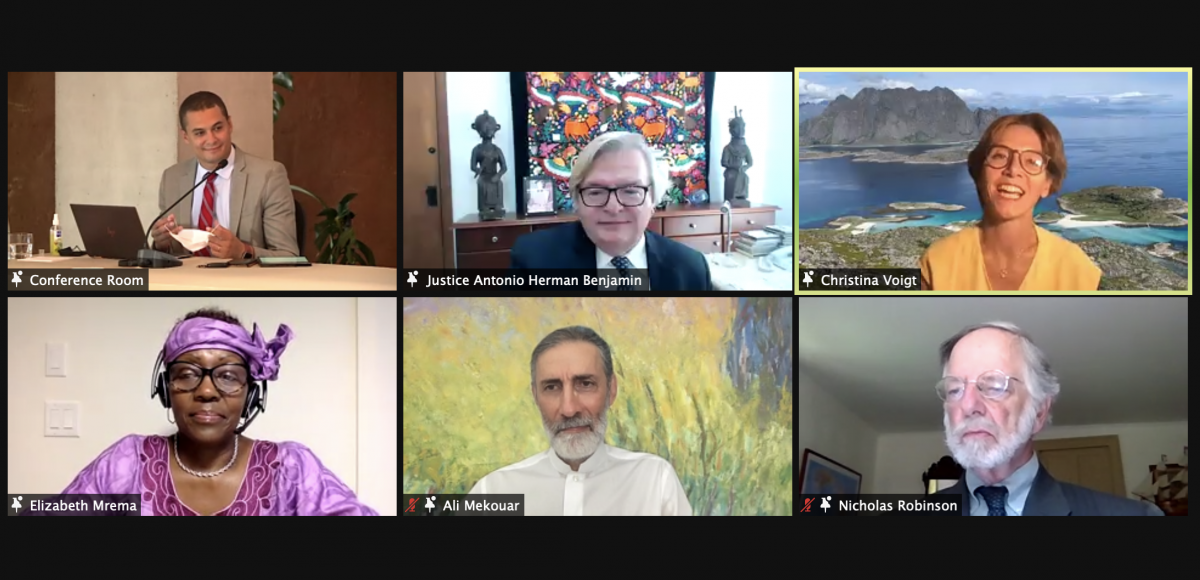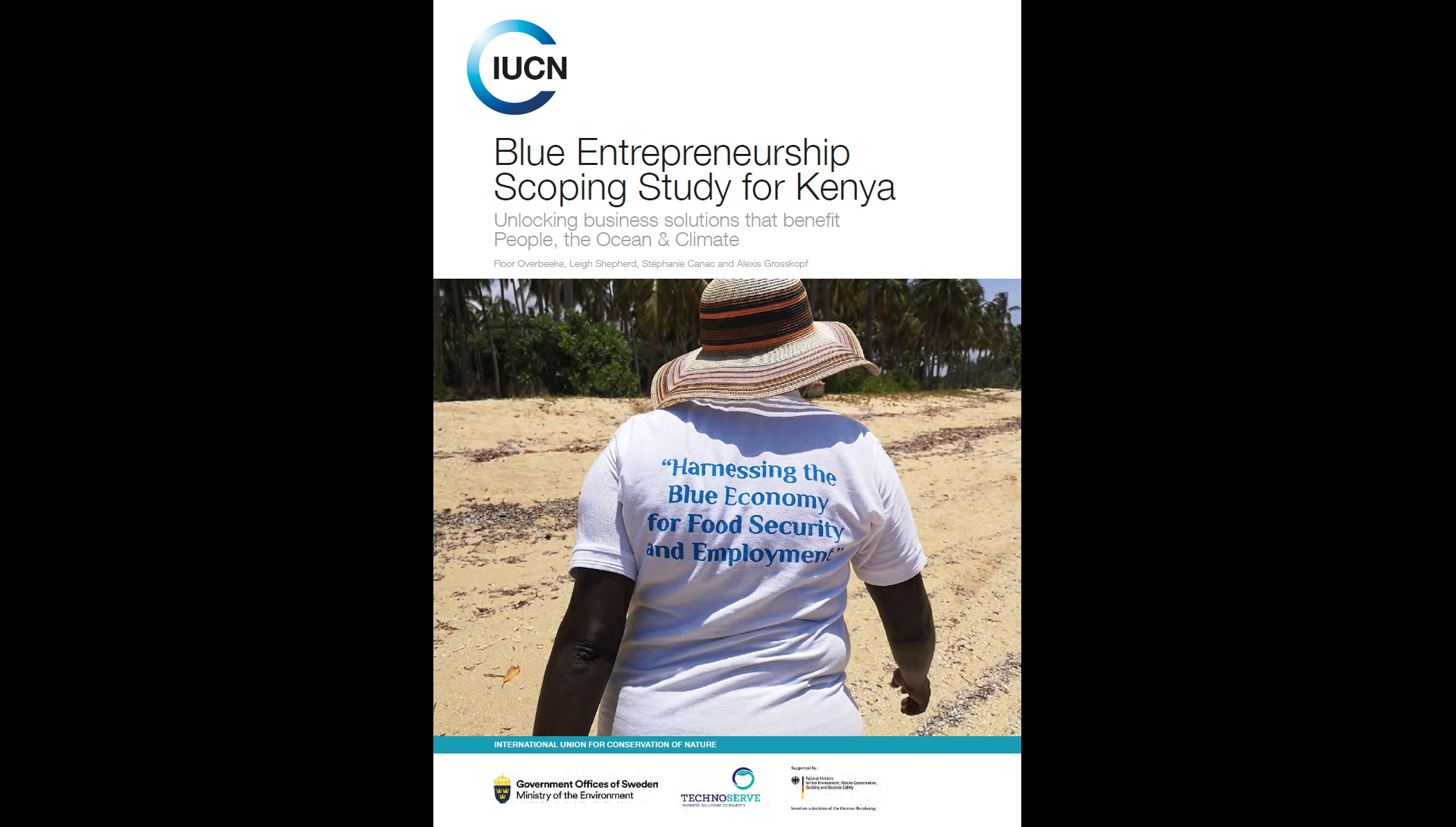WCEL Hosts African Environmental Law Congress
By Ayman Cherkaoui - On Wednesday 28 July and Thursday 29 July, 2021, participants from around the world gathered in Bouknadel, Morocco and online for the African Environmental Law Congress, organized by the IUCN World Commission on Environmental Law (WCEL) in collaboration with the United Nations Environment Programme (UNEP) and the Mohammed VI Foundation for Environmental Protection and hosted by the Hassan II International Environmental Training Center. This major “hybrid” event, with more than 40 speakers and hundreds of participants representing Africa and the world, was the third regional congress held as part of the 2nd World Environmental Law Congress, following the Inter-American Environmental Law Congress and the Inaugural IUCN Oceania Environmental Law Conference.
The overall theme for the 2nd IUCN World Environmental Law Congress is A Critical Decade for Environmental Law. In the year 2021, the world faces grave and complex environmental crises, including accelerated changes in global and local climates and rapid loss of biodiversity. Over the next decade, effective environmental law at local, national, regional, and international levels will be essential to shape and promote societal responses at the scale needed to meet these global crises.
At the African Environmental Law Congress, speakers and participants addressed the overall global theme as well as the Congress’ regional theme: Water, Desertification and Law. The first day of the Congress included a high-level opening ceremony with welcoming remarks from IUCN Director General Bruno Oberle, IUCN WCEL Chair Justice Antonio Herman Benjamin, UNEP Law Division Acting Director Arnold Kreilhuber, Mohammed VI Foundation for Environmental Protection Secretary General Nouzha Alaoui and was moderated by IUCN WCEL Steering Committee Member Prof. Christina Voigt. Keynote speakers and two high-level Round-Table Dialogues – including speakers present in Bouknadel, Morocco as well as online – discussed key outcomes of the previous two Regional Environmental Law Congresses (Inter-American and Oceania) as well as the African Environmental Law Congress theme and general trends and challenges in environmental law in Africa. Topics included climate change, cultural, social, environmental and economic interlinkages, the right to a healthy environment, and the increased recognition of a right of nature. Speakers also considered how environmental law works in practice in Africa when it comes to both rights and duties. The concept of Ubuntu “I am because we are and since we are I am” strongly resonated with speakers and participants alike.
During the second day of the Congress, three additional high-level Round-Table Dialogues, including a Special Session of Judges, addressed perspectives on the 2018 Brasília Declaration of Judges on Water Justice, the 9th World Water Forum, and water, desertification and climate change law in the context of the IUCN World Conservation Congress as well as UN CBD COP 15, UNFCCC COP26, UNEA 5.2 and UNCCD COP15. Elizabeth Mrema, Executive Secretary of the UN CBD provided a closing High Level Keynote Address. The Closing Ceremony, co-chaired by Grethel Aguilar, Deputy Director General, IUCN and Prof. Voigt comprised in closing remarks by IUCN President Zhang Xinsheng, and representatives of UNEP, IUCN Environmental Law Center, and WCEL.
The African Environmental Law Congress provided an important opportunity to recognize inspiring leaders in the field of Environmental Law. WCEL awarded the Nicholas Robinson Award for Excellence in Environmental Law to both Elizabeth Mrema of the UN CBD and Prof. Ali Mekouar of the University of Casablanca. Both were honored by WCEL Chair Justice Antonio Herman Benjamin and Prof. Christina Voigt for dedicated careers toward advancing the environmental rule of law.
To capture the key outcomes of the African Environmental Law Congress, the participants and speakers in the Congress are collaborating on the Bouknadel Declaration on African Environmental Law. The first draft of the Declaration, prepared by a Scientific Committee composed of leading environmental law experts, was presented during Congress for feedback and inputs.
